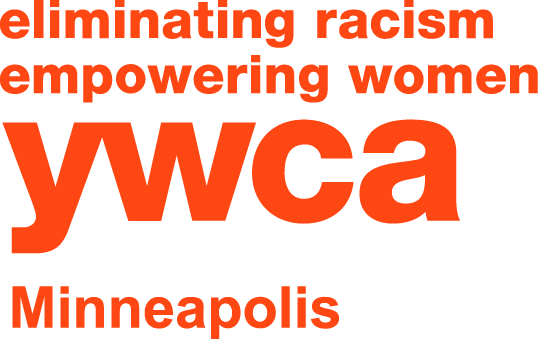Facilitating Courageous Conversations about Race
Q&A with YWCA Racial Justice Facilitator, Nichole Salaam
Nichole Salaam is Director of Equity and Engagement at Project for Pride in Living and recently trained as a Racial Justice Facilitator through YWCA Minneapolis. Here, she shares some thoughts about the training and why it’s important to continue having brave conversations about race and injustice.
Why did you want to be a Racial Justice Facilitator?
While I have engaged in social and racial justice work for years, I had never received training on how to actually facilitate courageous conversations specifically on the topic of race. Due to the often volatile nature of the subject of race, it’s critically important to establish a framework where people can enter into that uncomfortable space and be free to speak their truth without judgment. This training offered me tools to do that in a more thoughtful and systematic way.
Why is this work important to you?
This work is a part of my history and my legacy rooted in social justice, equity and inclusion. As a multiethnic, multiracial individual, I recognize the sacrifices my ancestors of color endured in their commitment to dismantle oppressive systems and the nexus of reconciling the perpetuation of such systems by some of my European ancestors. Also, it’s difficult to talk about race; I want to be equipped to help walk along others in their racial identity development and cultivate spaces where people can engage bravely regardless of where they are in their own journeys.
What have you learned through your experience with YWCA Minneapolis?
I have learned that this work is an ongoing, continuous journey of personal transformation. I have also recognized how critical it is to do this work within the context of coalitions of communities committed to advancing racial equity.
What stood out to you during the Racial Justice Facilitator Training?
One thing that stood out was the power of personal narrative and how important it is to create a space where people can understand and learn from the collective human experience in all of its breadth and depth of dimensions around race.
What are some of the skills that you learned?
I learned how listening to others has to be intentional and purposeful. I also learned that setting up protocols for engaging in discussion is key when having difficult or challenging conversations – I believe this is a skill that can be applied in various situations.
What is one challenge that comes up as a Racial Justice Facilitator?
One challenge discussed during the training was how to navigate situations as a facilitator when someone is occupying more “air space” during dialogue that is not equitable to others in a group. What I took away from the training is to remember that “it’s not about me.” Instead, the privilege is simply being at the table and setting the table for transformative dialogue.
What is your hope or vision for our community?
I hope we can have more opportunities to engage in shared learning spaces such as those offered by YWCA Minneapolis, and as a result, can create bolder visions for addressing the multiple layers of injustice and inequity that we see and/or experience every day. It is also my hope that we continue to build coalitions across private and public sectors in an effort to foster collaboration that puts leaders, lay persons and others at the table under a common vision to advance social and racial equity.
